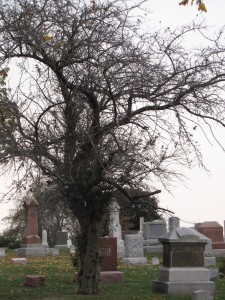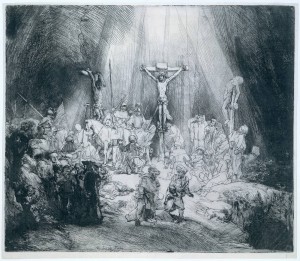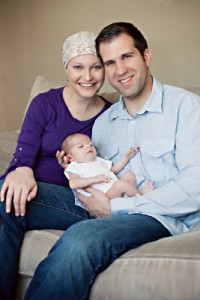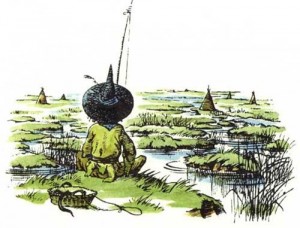I sit in the early morning, looking out the window at the wind making shimmery the leaves of our cottonwood, and remember Kristina. It is the third anniversary of her death, and it sometimes still feels as though we are stumbling through the dark. So much hurt and fear back then, so much hurt and fear all around us now. In this world, it will always be so. There are glimpses of light that keep us going, slight breaths of a hope that keeps our eyes searching the gloom for that bright and beautiful future that is promised, but it is easy to get distracted by the ugliness all around. I am drawn back to a post I wrote soon after Kristina’s death.
In the middle of this pain common to all of us who live in this world, as we sit surrounded by those who love us, it is tempting to add a veneer of softness, to speak in clichés that turn raw, ripped-open pain into a lie. Sometimes this is even encouraged among those of us who follow Christ. Yet to do this denies that we are real, that our hearts can be ripped in two, that our pain and loss can suffocate and almost overwhelm us. To do this denies that Christ is real, that His body and heart were also ripped apart.
My God, my God, why have you forsaken me?
When God seems not to place much importance on whether we are free from pain or suffering, it is difficult not to live in a state of paralysis. It seems a formidable task both to acknowledge the depth of pain we feel and also to acknowledge the depth of God’s love for us.
We see this pain in the world around us. We see it all throughout the Bible. Abel. Abraham. Joseph. Moses. Uriah the prophet…murdered for prophesying while Jeremiah was allowed to live. John the Baptist…Jesus’ cousin. All of the apostles…Jesus’ closest friends.
Understanding why Kristina had to die is hard. I might never know the reason.
God’s purposes are not for me to understand His plans: His plan is for me to understand Who He is…Faith is this unwavering trust in the heart of God in the hurt of here.” ~ Ann Voskamp
What can we do when everything inside of us wants to turn tail and run from the painful possibility of God’s loving best? Can we truly trust in the heart of God?
We often learn best through story. One story that helps to show us what to do is written in C.S. Lewis’ story of Narnia, The Silver Chair. Two children (Jill and Scrubb) and one Marsh-wiggle (Puddleglum) are given by Aslan (the Christ-figure) four signs with which to find the lost prince of Narnia. They completely botch the first three signs which leads to their imprisonment with a madman who is chained to a silver chair. The fourth and last sign is that someone “will ask you to do something in my name, in the name of Aslan”. The madman entreats the three travelers to free him, who says:
“Once and for all, I adjure you to set me free. By all fears and all loves, by the bright skies of Overland, by the great Lion, by Aslan himself, I charge you –”
“Oh!” said the three travelers as though they had been hurt. “It’s the sign,” said Puddleglum. “It was the words of the sign,” said Scrubb more cautiously. “Oh, what are we to do?” said Jill.
It was a dreadful question. What had been the use of promising one another that they would not on any account set the Knight free, if they were now to do so the first time he happened to call upon a name they really cared about? On the other hand, what had been the use of learning the signs if they weren’t going to obey them? Yet could Aslan have really meant them to unbind anyone – even a lunatic – who asked it in his name? … They had muffed three already; they daren’t muff the fourth.
“Oh, if only we knew!” said Jill. “I think we do know,” said Puddleglum. “Do you mean you think everything will come right if we do untie him?” said Scrubb.
“I don’t know about that,” said Puddleglum. “You see, Aslan didn’t tell (Jill) what would happen. He only told her what to do. That fellow will be the death of us once he’s up, I shouldn’t wonder. But that doesn’t let us off following the sign.”
That doesn’t let us off following the sign.
We aren’t guaranteed that anything here on earth will turn out all right. We try so hard to grasp at that security, to bring it into existence, but it simply is not there. Instead, if we have nothing else (and we do have so much else!), if we can turn to and trust nothing else, we have the cross.
After his wife of only four years had died of cancer, C. S. Lewis said, “If only I could bear it, or the worst of it, or any of it, instead of her…But is it ever allowed? It was allowed to One, we are told, and I find I can now believe again, that He has done vicariously whatever can be so done. He replies to our babble, ‘You cannot and you dare not. I could and dared.’”
And so we find that perhaps, after all, it does not matter why. It does not matter whence came the hard thing or even that it may be painfully hard. If God ever had to prove anything, at the cross He proved His love, His promise to work for the best of all He created.
It is not a bad thing to seek for the why’s and how’s and from where’s. God is able to handle our questions, our fears. Yet if we never get any answers, if we never know the reasons, if we never understand, then we who have chosen to follow Christ, who have allowed Jesus to be the Lord of our lives, we who have embraced His sacrifice of love…
We aren’t let off following the signs.
Sketch is Rembrandt’s The Three Crosses




